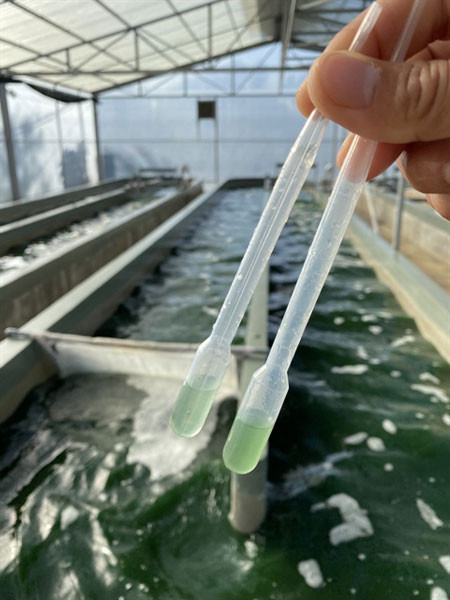
This type of algae can be made into herbal tea, biscuits, jelly and capsules, and is produced on a chemical-free and water-recycled production line as a 'One Commune One Product' (OCOP) brand in the district's eco-tourism production chain.
The product is being pushed into the market through online sales and e-trade transactions to promote the local OCOP brand as part of sustainable development and climate change resilience in the rural coastal area.
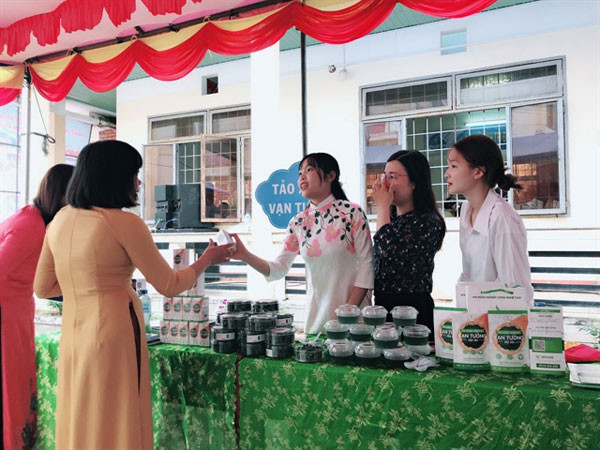
"Spirulina is the most suitable algae among 40 species in the research of biologists and scientists from the Da Nang University of Education and Science," said Do Bien Nhat, director of the Van Tuong high-tech agricultural cooperative, the first joint-venture model between farmers and scientists.
"We had surveys to build a model for a high-tech farming programme locally, and spirulina was chosen. The wetland area in An Loc Village of Binh Son District's Binh Tri Commune is a naturally pure water source from laterite terrain and with a climate created by the 120ha of century-old Ca Ninh nipa palm forest nearby," Nhat said.
"The cooperation with scientists from Da Nang University was chosen for the prolonged production of spirulina as gene sources were always guaranteed and provided by the scientists."
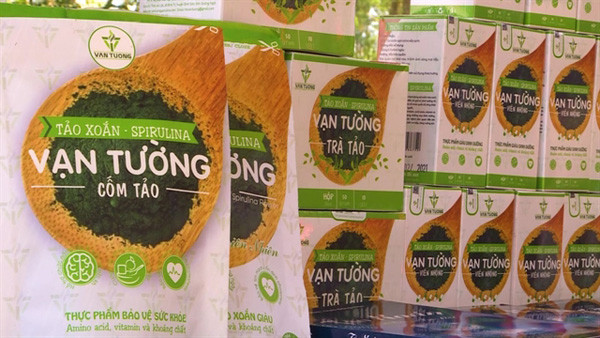
He added that scientists, farmers, and local authorities jointly discussed any changes in technology and production, especially in dealing with risks from the market or climate change.
The director explained that the production did not take long as the first harvest came out in 25 days, while the remaining fresh spirulina was collected 10 days later.
He said production uses water purification – reverse osmosis – for water recycling, while sediment water provides nutrition for aquatic farms or gardens.
Nguyen Van Tam, a cooperative member, said algae products, which range from functional food to materials for cosmetic production, helped promote eco-tourism locally by supporting local farmers diversifying from rice farming, coastal fishing, aquaculture and handicrafts.
Tam said that algae production could change the economic structure from agriculture-intensive into a profitable recycling economy based on scientific research.
Lecturers and senior students at the university have supported local farmers in producing products from algae and technology transfer.
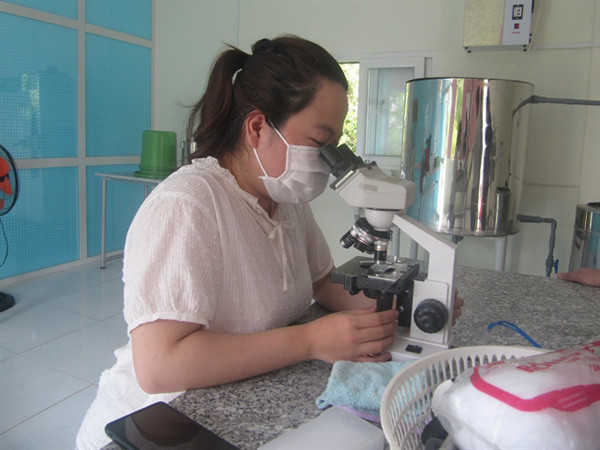
Dr Trinh Dang Mau, 34, a biologist and the mastermind behind the algae research laboratory at the university, said the pilot project of spirulina production would serve as a model for the local high-tech farming plan.
"Spirulina farming offers a sustainable option for Binh Son District as it can absorb carbon while discharging algae with rich nutrition for shrimp and fish farms and increase natural antibiotics among the species," Mau said.
"The university will cover consultancy and guarantee tissue and gene growing techniques to supply algae sources for the project and wider development in the district and central Vietnam in general."
He said the algae production would help change the local economic structure, reducing the overloaded exploitation of natural resources of water and farmland and a shift toward high-value production.
Phan Nhat Truong, from the ABR Company, said it provided machines and equipment to serve production, as well as consultancy in marketing and sales.
"Consumers are still confused about truthful information and the function of spirulina on the market, so we need a scientific knowledge approach. We also help the cooperative promote the product to the market based on the true information on the product's effectiveness in daily use," Truong said.
The central province of Quang Ngai approved the spirulina aquaculture project of the cooperative in Binh Son as the first critical project in future high-tech farming development.
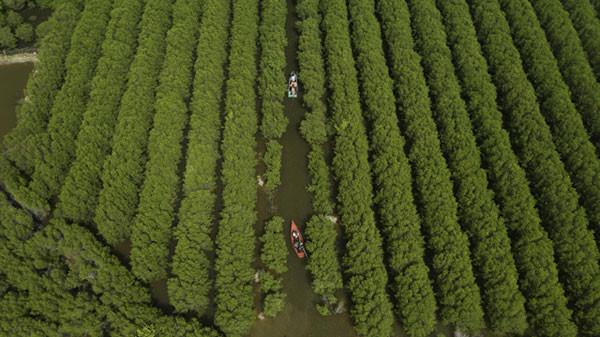
Vice Chairman of the Binh Son People's Committee Ung Dinh Hien recently announced a fund of VND400 million ($17,400) for the development of eight OCOP products, including spirulina.
The district also grew 45.7ha of coastal mangrove forest under the Climate Change Resilience and coastal mangrove swamp project in 2015. It has also been developing Bau Ca Cai – a 110-ha wetland forest – as an attractive eco-tour site in the province.
Source: Vietnam News